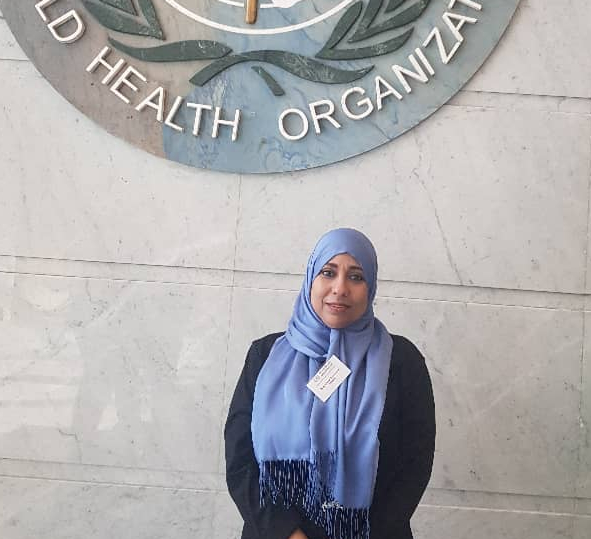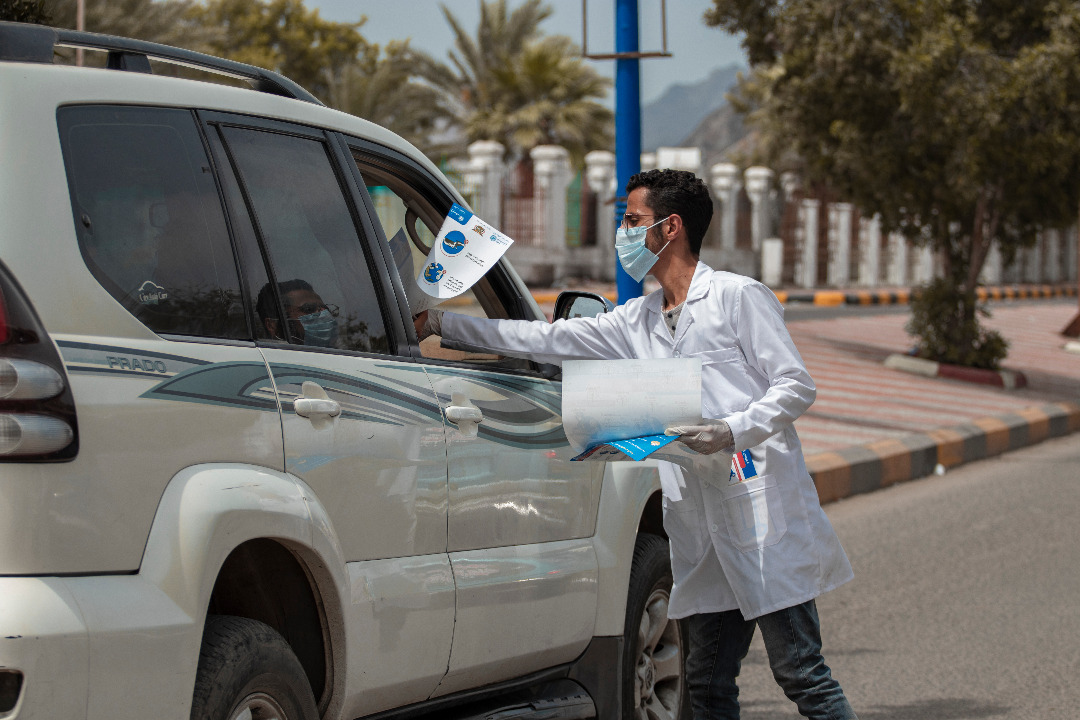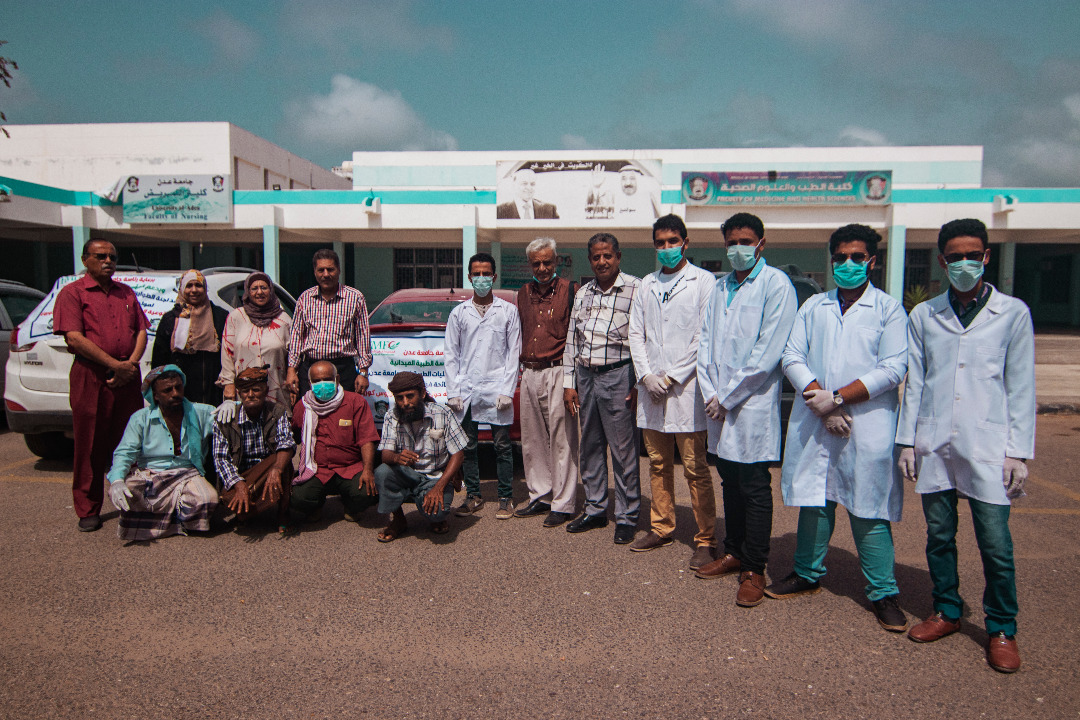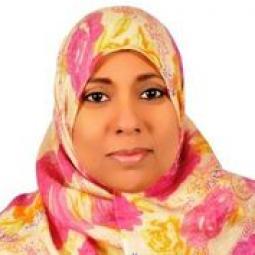Huda Basaleem on the arrival of COVID-19 in Yemen
April 21, 2020
The last straw? An OWSD Executive Board member gives her perspective on how the pandemic has affected her country.
Huda Basaleem is the Vice Dean of the Faculty of Postgraduate Studies and the Director of the Aden Cancer Registry and Research Center at the University of Aden in Yemen. Basaleem was an OWSD PhD fellow (2005) and an OWSD-Elsevier Foundation awardee (2013), and was elected OWSD Executive Board Member for the Arab Region in 2016.
"The health care system in Yemen has been decimated by years of unrelenting war imposing a devastating toll on the population and exacerbating existing vulnerabilities."
 The health care system in Yemen has been decimated by years of unrelenting war imposing a devastating toll on the population and exacerbating existing vulnerabilities. Since the conflict in Yemen escalated in March 2015, the country has suffered a severe economic decline, food insecurity and the collapse of essential services. We are experiencing the largest humanitarian crisis in the world, and more than 25 million people – some 80% of the population – are in need of humanitarian assistance. Over 3.6 million people have been displaced since the start of the conflict.
The health care system in Yemen has been decimated by years of unrelenting war imposing a devastating toll on the population and exacerbating existing vulnerabilities. Since the conflict in Yemen escalated in March 2015, the country has suffered a severe economic decline, food insecurity and the collapse of essential services. We are experiencing the largest humanitarian crisis in the world, and more than 25 million people – some 80% of the population – are in need of humanitarian assistance. Over 3.6 million people have been displaced since the start of the conflict.
On April 10, 2020, Yemen confirmed its first case of COVID-19. The disease poses a uniquely high risk for Yemen, and the likelihood of its spread is high as cases in surrounding countries continue to grow. The country’s infrastructure has been devastated by five years of conflict, leaving little capacity to respond. Only 51% of health centres are fully functional. There is limited medicine, equipment and personal protection equipment (PPE) available and only a few testing sites. COVID-19 measures will pull scarce resources from other lifesaving health responses to prevalent diseases like cholera and dengue. Unfortunately, current conflict escalation, water scarcity, displacement and overcrowding make it difficult to implement protection measures (social distancing, hand washing). Furthermore, poor media services and lack of trust in public institutions make it challenging to deliver behaviour-change messaging.
 As a community medicine and public health professional, research related to the COVID-19 pandemic is very relevant to my specialty. My institute, the University of Aden, has suspended all academic activities from March 16 until May 30, and there are limited possibilities to continue academic activities with electronic/distance learning due to poor electricity and internet services. However, despite these challenges, we are now assessing and developing research protocols regarding the:
As a community medicine and public health professional, research related to the COVID-19 pandemic is very relevant to my specialty. My institute, the University of Aden, has suspended all academic activities from March 16 until May 30, and there are limited possibilities to continue academic activities with electronic/distance learning due to poor electricity and internet services. However, despite these challenges, we are now assessing and developing research protocols regarding the:
- knowledge, attitude, and practice of Yemeni health care providers relating to COVID-19
- preparedness of the Yemeni health system to confront the COVID-19 epidemic
- epidemiological reasoning skills of university medical students with regard to coronavirus infection
- ethical issues related to the management of COVID-19
 Furthermore, medical colleges of the University of Aden have established an emergency committee to organize and strengthen the efforts to confront COVID-19 in the community. I work with training students from the medical faculties in conducting community outreach campaigns using cars, microphones and printed materials to raise awareness about the personal and community protective measures that help in the prevention and control of the disease. In addition, as a member of the Scientific Board of the Center of Ethics of Science and Technology at the University of Aden I’m participating (with a group of public health professionals) in the efforts of ethics committees to characterize the ethical response to the pandemic at the global level, under the umbrella of the World Health Organization and UNESCO.
Furthermore, medical colleges of the University of Aden have established an emergency committee to organize and strengthen the efforts to confront COVID-19 in the community. I work with training students from the medical faculties in conducting community outreach campaigns using cars, microphones and printed materials to raise awareness about the personal and community protective measures that help in the prevention and control of the disease. In addition, as a member of the Scientific Board of the Center of Ethics of Science and Technology at the University of Aden I’m participating (with a group of public health professionals) in the efforts of ethics committees to characterize the ethical response to the pandemic at the global level, under the umbrella of the World Health Organization and UNESCO.
"COVID-19 is a novel disease which is dramatically devastating individuals, families, the health system and humanity at large. Research is mandatory to uncover its mystery."
COVID-19 is a novel disease which is dramatically devastating individuals, families, the health system and humanity at large. Research is mandatory to uncover its mystery. Besides the obvious need for more research into the clinical aspects of the disease, increasing research in community medicine and public health is also important. Epidemiology, health education and promotion, the management of health services, emergency preparedness and social measures all play a crucial role in slowing or stopping the spread of COVID-19.
Photos: 1) Huda Basaleem at the WHO-Eastern Mediterranean Regional Office in Cairo, Egypt, Dec 2019; 2) Health messages for precautionary measures delivered to drivers in Aden; 3) Huda Basaleem (second left, back row) with members of the Faculty of Medicine and Health Sciences, University of Aden.











































